Hungarian Historical Society
The Hungarian Historical Society (Hungarian: Magyar Történelmi Társulat) is a learned society in Hungary, established in 1867. Its main responsibilities are the cultivation of the History of Hungary, dissemination of scientific findings, supporting research and development and representing the history of Hungary domestically and around the world.
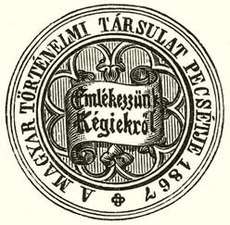 The seal and the motto of the Hungarian Historical Society | |
| Motto | "Emlékezzünk régiekről!″ (Remember the Old Ones) |
|---|---|
| Formation | 15 May 1867 |
| Type | Historical society, GO, NGO, IGO |
| Headquarters | 1097 Tóth Kálmán str. 4. B building 512, 9th District of Budapest, Hungary |
| Coordinates | 47.4736°N 19.0727°E4 |
Region served | Hungary |
Official language | Hungarian |
President | Róbert Hermann D.Sc |
| Website | English version |
Aims
The historical society's aims are:
- Cultivating and promoting Hungarian historiography and history, organizing archival research and publishing national historical sources according to the unpolitical spirituality.
- Spreading the recent study results of the Hungarian and – as far as possible – Universal History to reach the widest audience.
- Its traditional aims are to become a large, informal "guild" to defend and represent the interests of the Hungarian historians, the educators of the history of Hungary and those people who are interested in history.[1]
Motto
- "Emlékezzünk régiekről!″ (Remember the Old Ones)
History
The Hungarian Historical Society was established on May 15, 1867. The first session to establish the society was held on 2 February 1867 which was summoned by Arnold Ipolyi. Here they discussed the ways in which the society was formed and chose a committee to elaborate the basic rules. The first General Assembly was held with 300 members at the Hungarian Academy of Sciences. On 13 June Imre Mikó was elected to the chairman of the society, and acted as a leader until 1876.[2]
21st century
The goal of the new millennium was that the society renewed the old traditions of conferences and congresses related to the various significant anniversaries, and it began monthly talk series about "Critical Issues in the national history" and the modernization of Periodical Századok. The society celebrated its 150th anniversary on May 15, 2017, and on this occasion a memorial conference was held at the Hungarian Academy of Sciences on 6 December 2017.[3]
Organisation
The management and the Board of Directors is run by the General Assembly. The 20 members of the Board of Directors are elected by the ordinary Annual General Assembly meeting among regular members by secret ballot. The management is consisting of nine members: the chairperson, the five deputy chairpersons among whom one serves as an acting chairperson, the general secretary, the chairman of the Editorial Board of Periodical Századok and its editor-in-chief.[4]
Committees
- Regional committees: Borsod-Abaúj-Zemplén County Committee, Southern Great Plain Committee, Southern Transdanubia Committee, Hajdú-Bihar County Committee, Heves County Committee, Eastern Transdanubia Committee, Western Transdanubia Committee, Szabolcs-Szatmár-Bereg County Committee.
- Specialized sections: Information history Section, Doctorandus Section, László Vekerdy Section.
- Professional committees (sections): Church history Section, Environmental history Section, Women's history Section, Teacher's Section.[5]
Leadership
Chairpersons
| Imre Mikó | 1867 – 1876 | 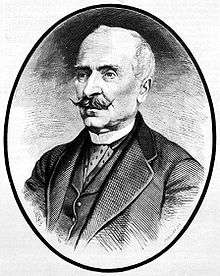 |
| Mihály Horváth | 1877 – 1878 | 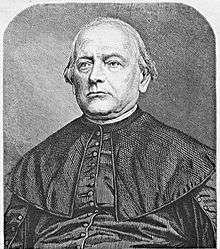 |
| Arnold Ipolyi | 1878 – 1886 | 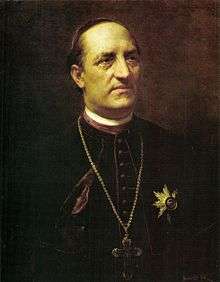 |
| Gábor Kemény | 1887 – 1888 | .jpg) |
| Antal Szécsen | 1888 – 1894 |  |
| Géza Teleki | 1894 – 1913 | |
| Lajos Thallóczy | 1913 – 1916 | |
| Kuno von Klebelsberg | 1917 – 1932 | 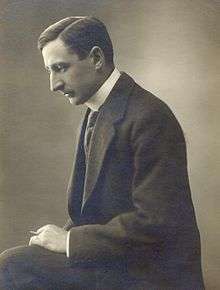 |
| Bálint Hóman | 1933 – 1944 | |
| Ferenc Eckhart | 1946 – 1949 | |
| Erzsébet Andics | 1949 – 1958 | |
| Erik Molnár | 1958 – 1966 |  |
| Győző Ember | 1967 – 1975 | |
| Iván T. Berend | 1975 – 1982 | |
| László Makkai | 1982 – 1985 | |
| Sándor Balogh | 1986 – 1990 | |
| István Diószegi | 1991 – 1999[6] |  |
| Domokos Kosáry | 1999 – 2007 | 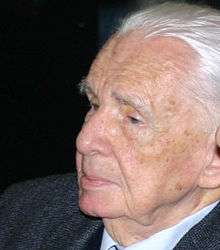 |
| István Orosz | 2007 – 2015 | |
| Róbert Hermann | 2015 – present |
Current Management
| Róbert Hermann | Chairman | |
| Enikő Csukovits | General Secretary | |
| Attila Pók | Acting (deputy) chairman | |
| Enikő A. Sajti | Deputy chairwoman | 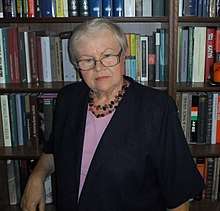 |
| Magdolna Baráth | Deputy chairwoman | |
| László Csorba | Deputy chairman |  |
| László Szarka | Deputy chairman | |
| Csaba Fazekas | Deputy General Secretary | |
| Tibor Frank | Chairman of the Editorial Board of Periodical Századok |
Types of the Publications of the Society
The society published several journals, periodicals and books from its establishment, 1867, e.g monographs, book series, sourcebooks, study books, biographies, mémoires, e.g. about significant Hungarian historical persons like Ladislaus IV of Hungary, Louis I of Hungary, Mary, Queen of Hungary, Matthias Corvinus, Tamás Bakócz, Sigismund Rákóczi, Péter Pázmány, Gabriel Bethlen, Miklós Zrínyi, George II Rákóczi, Emeric Thököly. In 1867 it established its most important periodical named Századok (Centuries) which has survived until now.[7]
References
- Ferenc Glatz (1961). "A Magyar Történelmi Társulat megalakulásának története (The Establishment of the Hungarian Historical Society)" (PDF). Századok (in Hungarian). 101: 233–267. Archived from the original (PDF) on 2018-03-19. Retrieved 2018-03-23. ISSN 0039-8098
- Orosz, István. "Imre Mikó – President of the Hungarian Historical Society (abstract)" (PDF). Transylvanian Museum Society. Retrieved 2018-03-23.
- "Celebrating the 150th anniversary of Hungarican Historical Society. Published on 2017-06-02". Library of the Hungarian Parliament. Retrieved 2018-03-23.
- Szőts, Zoltán Oszkár. "Tisztújítás a Magyar Történelmi Társulat élén (The election of the officials of the Hungarian Historical Society in 2015" (in Hungarian). újkor.hu. Archived from the original on 2018-03-25. Retrieved 2018-03-23.
- "MTT Tanári Tagozat (Teacher's Section, HHS)" (in Hungarian). facebook. Retrieved 2018-03-23.
- "Prof. István Diószegi, PhD". First World War Centennial Committee. Retrieved 2018-03-23.
- "A Magyar Történelmi Társulat fontosabb kiadványai 1867– (Selected Publications of HHS)" (PDF) (in Hungarian). Magyar Történelmi Társulat (Hungarian Historical Society/HHS). Archived from the original (PDF) on 2017-04-21. Retrieved 2018-03-23.
Bibliography
- Cservenka, Judit. "„Emlékezzünk régiekről!" – 150 éves a Magyar Történelmi Társulat (Celebrating the 150th anniversary of Hungarican Historical Society). Published on December 8, 2017" (in Hungarian). Felvidék ma. Archived from the original on March 23, 2018. Retrieved 2018-03-23.
- Nagy, László (2009). "A Magyar Történelmi Társulat történetének forrásai (Sources of History of the HHS)" (PDF). Magyar Tudomány (in Hungarian). 170 (2): 160–168. Retrieved 2018-03-23.
External links
![]()
- Official website

- "Magyar Történelmi Társulat (Hungarian Historical Society)" (in Hungarian). facebook. Archived from the original on 2019-04-26. Retrieved 2018-03-23.
- "Participants at the Congress of the Hungarican Historical Society. Published on 1953-06-05" (PDF). CIA. Retrieved 2018-03-23.
- "Participants at the Congress of the Hungarican Historical Society. Published on 1953-06-05". CIA Library. Retrieved 2018-03-23.
